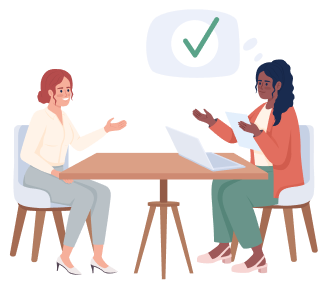A resume, no matter how good, will not get you a job by itself. However, a good resume will attract the attention of the hiring manager and secure a job interview. The purpose of a resume is to disclose your accomplishments and qualifications to a potential employer. If the employer likes what she sees, she will contact you for a face-to-face meeting.
- Your resume is also an example of your communication and organizational skills. A well done resume is itself another reminder of what kind of valuable employee you would be.
- Think of your resume as a promotional brochure about you. You need to show a potential employer what you have accomplished and where your experience lies. Your strategy should be to emphasize the experience and skills that a particular employer is looking for.
- Keep it concise. Employers have lots to do, so don’t make the mistake of asking them to read through an unnecessarily long resume. Resumes should be one page, if possible, and two if absolutely necessary to describe relevant work experience. A two page resume is no advantage if it’s full of information that isn’t reasonably applicable to the position you’re applying for. Use the space only if you need it to fully disclose your accomplishments.
- Avoid large paragraphs (over six or seven lines). Resumes are often scanned by hiring managers. If you provide small, digestible pieces of information you stand a better chance of having your resume actually read.
- Don’t neglect appearance. Your resume is the first impression you’ll make on a potential employer, and a successful resume depends on more than what you say; how you say it counts as well.
- Check your resume for proper grammar and correct spelling-evidence of good communication skills and attention to detail. Nothing can ruin your chances of getting a job faster than submitting resume filled with (easily preventable) mistakes.
- Make your resume easy on the eyes. Use normal margins (1″ on the top and bottom, 1.25″ on the sides) and don’t cram your text onto the page. Allow for some breathing room between the different sections. Avoid unusual or exotic font styles; use simple fonts with a professional look.
- Use standard, non-textured, fine-grained paper in white or ivory. Keep in mind that textured and dark colored paper may not copy well when the employer makes copies to pass around to other participants in the hiring process.
- Emphasize what you can do for an employer. Be specific. If you are going after more than one job opening, customize your resume accordingly. It helps to tailor your resume for a specific position.
- Remember to only include the experience that is relevant to the job.
- List your hobbies and interests only if you can relate them to the position you’re applying for. If you need room to describe your work experience, avoid this altogether.



